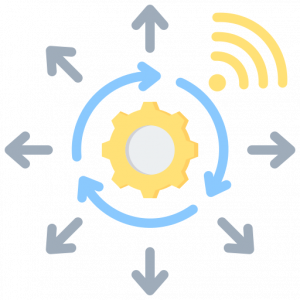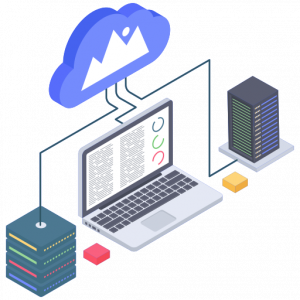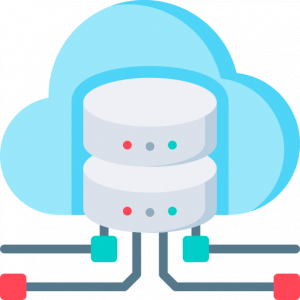
DevOps is the way of the future, and many organizations want to implement it to improve how their businesses operate. Azure is a leading cloud service provider offering a robust DevOps service set. Today, a strong digital presence defines business success, making Azure DevOps critical to driving product velocity, improving application delivery, and competing in the digital economy. In this article, we will cover everything you need to know about Azure DevOps.
What is Azure DevOps?
Azure DevOps was formerly known as Visual Studio Team Services until 2018 when the online and on-premise versions were renamed Azure DevOps. Azure is a Software as a Service (SaaS) platform from Microsoft that provides comprehensive DevOps tools for developing and deploying software. It is an excellent choice for coordinating DevOps services and integrates with most market-leading tools. As a result, many of DevOps Group’s clients have discovered that Azure DevOps meets their needs regardless of the language, platform, or cloud they use.
Azure DevOps provides integration with popular open-source and third-party tools and services and the full DevOps workflow. Use the programs and tools you are already familiar with. Spending less time integrating allows you to deliver higher-quality software faster.
One of Azure DevOps most notable features is its ability to integrate with other solutions on the market. Furthermore, it is used for collaboratively managing the entire DevOps toolchain and for shared management of the process flow. This allows the organization to make use of the tools that are already in place. Azure DevOps outperforms other technologies currently on the market due to its flexibility. It offers two possibilities.
- Azure Services for DevOps
- Azure DevOps Server
Azure DevOps Services
Azure DevOps comprises five services, which we’ll discuss in this section. All these services can be grouped under individual projects to provide users with proper isolation between projects that use different technologies and cater to different needs.
Azure Boards
It assists software developers in keeping track of and monitoring work essentials such as stories, issues, threats, bugs, and other vulnerabilities. Azure boards also find a quick solution to all problems related to work items and essentials. It helps collaboration among various teams and departments on a single project or task by improving communication skills. As a result, it is an excellent medium for monitoring project progress.
Azure Repos
Azure Repos are code repositories where users can manage their codebases. These private and cloud-based repositories support both Git and TFVC version control systems. Azure Repos can help with projects of any size, from small hobby projects to large enterprise developments.
Azure DevOps Pipelines
It is a CI/CD tool that allows for automated development, testing, and deployment. Azure DevOps pipelines are adaptable enough to handle various languages and projects. Furthermore, these pipelines test and deploy your code for any number of targets using a combination of CI and CD. There are two general approaches to using Azure DevOps pipelines:
- Approach 1 involves defining the pipelines with YAML ( Yet Another Markup Language) syntax
- Approach 2 involves defining through a classic interface
Azure Test Plans
The Azure DevOps service Test Plans enable users to incorporate a cloud-based testing platform to manage all testing requirements, such as:
- Planned manual testing
- Exploratory testing
- User acceptance testing (UAT)
- Gathering feedback from stakeholders
Azure Test Plans permit users to create test plans and perform test cases within a pipeline. This can be merged with Azure Boards to create a test executed from the Kanban boards and to plan and authorize tests collaboratively.
Azure Artifacts
Azure Artifacts is the final component of Azure DevOps services. It includes a library service with shareability features. As a result, developers can share and use packages from available feeds and public registries. Azure artifacts are pre-installed services on a system.
These could be Azure DevOps on the cloud or on-premises. Furthermore, users pay as they use the benefits, but the best part is that it provides free service for up to 2GB of storage. It supports various package formats, including npm, Maven, Python, and universal packages.
Azure DevOps Services Vs. Azure DevOps Server
Azure DevOps Services and Azure DevOps Server, formerly known as Visual Studio Team Services and Team Foundation Server respectively, are two distinct but related development tools. They can assist you with code planning, versioning, and even deployment. Azure DevOps Services is a cloud-based service. It is scalable, dependable, and globally accessible. Moreover, it is backed by a 99.9% SLA and is constantly monitored.
Azure DevOps Server, the on-premises product, is built on a SQL Server backend. As a result, customers frequently choose the on-premises version when they require their data to stay within their network. Companies select this option when they require to keep their data within their network or when they want to use SQL Server reporting services. While both tools provide the same essential resources, there are some key differences to consider when determining which is best for you.
| Azure DevOps Services | Azure DevOps Server |
| It is a cloud service | It is an on-premise service |
| It provides two data scaling and scoping options: organizations and projects | It provides three data scaling and scoping options: deployment, project collections, and projects |
| Each user must be assigned an access level | Access levels must be set based on the license |
| You can connect to the internet using the public network | You can access the intranet server |
Lifecycle of Azure DevOps
The phases of the Azure DevOps lifecycle are as follows:
- Write code, test, and debug – During the development stage, code for Azure applications is typically built locally on a developer’s machine. Azure Functions are new services that Microsoft has recently added to Azure Apps. Azure is a serverless computing feature that allows developers to build enterprise applications without writing code or maintaining infrastructure.
- Two popular code collaboration tools for Deploying and Monitoring are Visual Studio Team Services and Git.
- For continuous integration and deployment of your codebase, Azure App Service for DevOps offers the following deployment slots:
- OneDrive
- Dropbox
- Local git repository
- GitHub
- Team Services in Visual Studio
If your code is open source and hosted on public GitHub, you can test and deploy it using Continuous Integration tools like Travis CI or CircleCI.
Features of Azure DevOps
Azure DevOps services provide a wealth of features for development teams. Among the Azure DevOps features are:
Dashboard Control
You can quickly navigate to different project areas, add and manage dashboards, and configure dashboard widgets using the DevOps dashboard feature.
Improved Source Control
Azure DevOps systems support two popular types of source control: distributed Git and centralized client-server Team Foundation Version Control (TFVC). To see the change history, you can add and manage Azure Git tags and review, download, and edit files.
Plan and Monitor Your Work
Some work items provided by Azure DevOps systems are used to monitor features, requirements, user stories, tasks, bugs, and more. For planning purposes, you can access several backlogs and boards that support agile methods, such as Scrum, Scrumban, or Kanban. For example, you can add and update relevant work items, manage product backlogs, plan sprints with sprint backlogs, and visualize workflow and statuses with Kanban boards.
Manual and Exploratory Testing Assistance
Workflow customization, end-to-end traceability, criteria-based selection, and real-time charts that track test activity are among the test features available in Azure DevOps.
Services for Integrated Collaboration
The feature that allows teams to collaborate across all Azure DevOps features and functions:
- Dashboards for teams
- Work items, commits, pull requests, and other artifacts that support traceability
- Work item forms for discussion
- Power BI reporting, analytic views, and analytics service
- Change notifications and alerts are managed per user, team, project, or organization.
- Capability to solicit and manage feedback
Continuous Integration and Continuous Deployment (CI/CD)
Many developers use CI/CD, and Azure DevOps makes it easy. Developers can use Azure DevOps pipelines to automate many design processes, such as defining builds and their steps, creating test instructions, and managing simultaneous releases.
Cloud-hosted Services on Azure
Azure offers cloud-hosted services to DevOps teams to help with application development and deployment. These services can be used independently or in tandem with Azure DevOps.
Benefits of Azure DevOps
Azure DevOps is becoming more popular, and businesses are considering making changes. As a result, they prioritize collaboration with development and operations to increase the use of agile business techniques.
Start-ups are using Azure DevOps services in a big way to help their businesses. But it’s important to figure out if adopting and using Azure DevOps is worth the risk. But if a company uses Azure DevOps correctly, it can get these benefits. So let’s talk about the advantages of Azure DevOps.
Catalyze Cloud Development
You can now easily focus on software development without worrying too much about pipeline construction. Azure provides end-to-end solutions for dealing with pipelines, establishing new ones, and managing current ones, accelerating the software development process.
Rapid Delivery
DevOps combines all tools and processes in the cloud, beginning with the development and testing of cloud-based applications using automated technologies, followed by deployment as soon as code is committed. Above all, this expedites delivery.
Improved Dependability and Continuous Integration
You should no longer be overly concerned with security and infrastructure management. And you can concentrate more on creating novel solutions. You can leverage the infrastructure with Azure and the CI/CD it provides. You can treat it as code using Azure Resource Manager or Terraforms. In addition, this enables you to create a duplicate that complies with compliance rules.
Improved Collaboration
The team easily collaborates with DevOps and a single, unified platform Developer and Operations share duties and feedback without becoming isolated.
Freedom of Customization
With Azure, you can utilize your chosen tool, the perfect option for your software development. This is because Azure is easily integrated with most of the market’s tools, simplifying customization and experimentation.
Azure DevOps Certification
With the increased adoption of DevOps methodologies in industries, becoming certified to validate your DevOps skills may be just what your career requires. Azure DevOps skills are in huge demand, and qualified technical professionals may be able to take advantage of these opportunities. As a result, obtaining a DevOps certification in Azure Is critical for professional development. DevOps certifications in Azure are expert-level exams that validate subject matter professionals’ skills and expertise in working with processes and technology while incorporating people skills/abilities to deliver business value to customers.
According to Microsoft CEO Satya Nadella, “95 percent of Fortune 500 companies already use Azure.”
Azure DevOps is expected to be one of the most in-demand technical skills in 2023. With so many businesses relying on Azure, there will be many Azure DevOps job opportunities for Azure-skilled cloud professionals, including certified Azure DevOps Engineers. The average Azure DevOps Engineer salary in the United States is $130,000 per year or $62.50 per hour. Entry-level salaries start at $117,292, with most experienced workers earning up to $159,259 per year.
Azure DevOps Pricing
Since many open-source tools can be integrated to give you the same functionality as Azure DevOps, it’s important to know that you can use Azure DevOps for free if your team is smaller than five or if you’re working on an open-source project. Azure DevOps pricing begins at £22.35 +VAT per month for up to 10 Users. Concurrency using the Free Hosted Build Agents is where the free tier limitation begins – but you can determine that by running your self-hosted build agents.
To summarize, Azure DevOps is an all-in-one Agile-focused plan tracking and preparation tool coupled with Developer and DevOps tools for writing, developing, and deploying code to your server estate. It has a friendly GUI and unique integrations. Getting started is very straightforward – so much so that you can run tasks and build/deploy applications almost quickly and pain-free.
Microsoft appears to be settling a lot of focus into Azure DevOps at the moment, and features are improved/added often, so there will be many beautiful things to come.
Azure DevOps Skill Requirements
Azure offers comprehensive tools that enable software development teams to use DevOps principles throughout all phases of development. To learn DevOps, prospective students require the following skills and knowledge.
Understanding Important Development Applications
Azure DevOps is a collection of tools and services that facilitate implementing DevOps processes. For mastering Azure DevOps, it is recommended that candidates master all of the major DevOps tools. Moreover, these tools include Jenkins and Docker.
Software Protection
The importance of ensuring the application’s security is equal to working on the application. If hackers gain access to any system, the network could be compromised. In conclusion, developers are responsible for writing application security code.
Technology and Automation Tools
The automation accelerates the development and deployment processes. Therefore, DevOps requires expert knowledge of automation technologies and tools.
Coding and Programming
Ruby, Python, Perl, and other coding and scripting languages are crucial for Azure DevOps engineers. Therefore, they are responsible for writing manual programs and replacing manual processes.
Cloud
The cloud provides a better location for storing all data backups. It aids in orchestrating a more effective and organized automated procedure. In addition, it expedites the development and deployment of apps.
Azure DevOps Testing provides powerful features for testing apps. However, as all reputable firms use a variety of testing methodologies, professionals must have a solid understanding of testing and its many approaches for proper application.
Azure DevOps Vs. Jira
Azure DevOps is a collection of development tools for software teams. In contrast, Jira Software Cloud assists teams of all sizes in managing work in whatever agile flavor works best for them.
Jira supports Agile methodologies such as Scrum and Kanban and allows teams to adjust workflow iterations and add more features while in progress, which Azure DevOps does not.
In contrast, Azure DevOps allows teams to see a project from beginning to end and the connections between various stages and work items. Whereas Jira does not allow teams to see previous tasks or iterations. For example, Jira users cannot see whether a completed Story is associated with a software release.
Teams can use Azure DevOps to track and view every step of the project, from ideation to deployment. Azure DevOps and Jira are both popular and useful software development tools, but your best choice will be determined by how you intend to use the tool.
Microsoft Azure: Blockchain Case Study
Redback Technologies has always sought new ways to integrate blockchain technologies into its energy products and services. However, since blockchain technology and frameworks are extremely new, and many practices and processes haven’t been determined yet, the company had very little guidance on implementing DevOps around blockchain products.
Microsoft Azure helped Redback implement its initial DevOps process, which allowed the developers on their team to modify their contracts and maintain a continuous integration (CI). In addition, they confirmed that there were no build errors and provided an in-memory test blockchain to run the integration tests. A truly rare and unique case study, Azure DevOps was able to find solutions for newer technologies, thereby proving its tremendous potential.
Conclusion
Before concluding, Azure DevOps provides developers and teams with a secure working environment. They also have complete freedom to work from wherever and in whatever format they see fit. Azure DevOps is an open-source technology that addresses vendor issues like vendor lock-in. Furthermore, it offers extensive integration via industry tools and methodologies.
In the world of DevOps, there are a lot of job opportunities, and if you know how to use Azure DevOps, you’ll have the edge over other candidates during the interview process. Some of the popular DevOps certification courses that professionals can take up are:






























